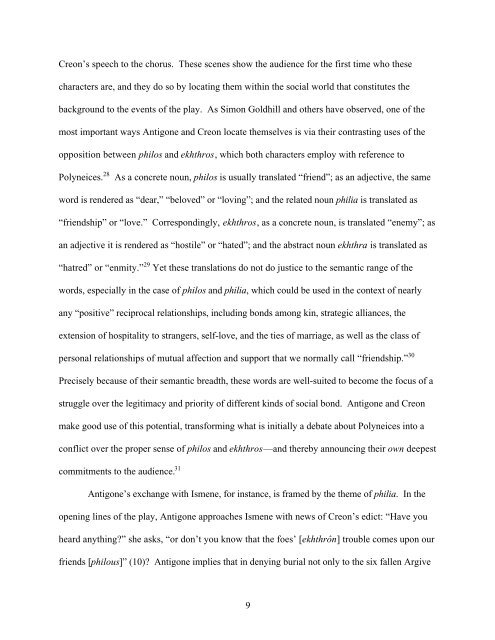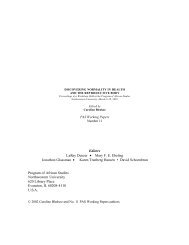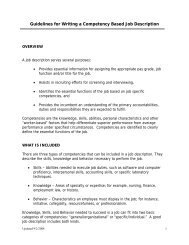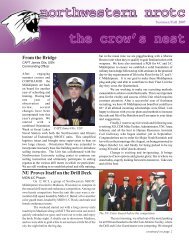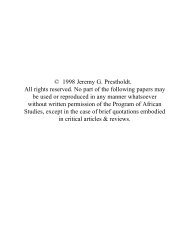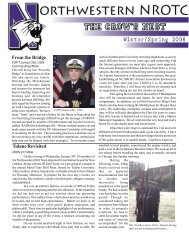TRAGIC RECOGNITION: ACTION AND IDENTITY IN ANTIGONE ...
TRAGIC RECOGNITION: ACTION AND IDENTITY IN ANTIGONE ...
TRAGIC RECOGNITION: ACTION AND IDENTITY IN ANTIGONE ...
You also want an ePaper? Increase the reach of your titles
YUMPU automatically turns print PDFs into web optimized ePapers that Google loves.
Creon’s speech to the chorus. These scenes show the audience for the first time who these<br />
characters are, and they do so by locating them within the social world that constitutes the<br />
background to the events of the play. As Simon Goldhill and others have observed, one of the<br />
most important ways Antigone and Creon locate themselves is via their contrasting uses of the<br />
opposition between philos and ekhthros, which both characters employ with reference to<br />
Polyneices. 28 As a concrete noun, philos is usually translated “friend”; as an adjective, the same<br />
word is rendered as “dear,” “beloved” or “loving”; and the related noun philia is translated as<br />
“friendship” or “love.” Correspondingly, ekhthros, as a concrete noun, is translated “enemy”; as<br />
an adjective it is rendered as “hostile” or “hated”; and the abstract noun ekhthra is translated as<br />
“hatred” or “enmity.” 29 Yet these translations do not do justice to the semantic range of the<br />
words, especially in the case of philos and philia, which could be used in the context of nearly<br />
any “positive” reciprocal relationships, including bonds among kin, strategic alliances, the<br />
extension of hospitality to strangers, self-love, and the ties of marriage, as well as the class of<br />
personal relationships of mutual affection and support that we normally call “friendship.” 30<br />
Precisely because of their semantic breadth, these words are well-suited to become the focus of a<br />
struggle over the legitimacy and priority of different kinds of social bond. Antigone and Creon<br />
make good use of this potential, transforming what is initially a debate about Polyneices into a<br />
conflict over the proper sense of philos and ekhthros—and thereby announcing their own deepest<br />
commitments to the audience. 31<br />
Antigone’s exchange with Ismene, for instance, is framed by the theme of philia. In the<br />
opening lines of the play, Antigone approaches Ismene with news of Creon’s edict: “Have you<br />
heard anything?” she asks, “or don’t you know that the foes’ [ekhthrôn] trouble comes upon our<br />
friends [philous]” (10)? Antigone implies that in denying burial not only to the six fallen Argive<br />
9


